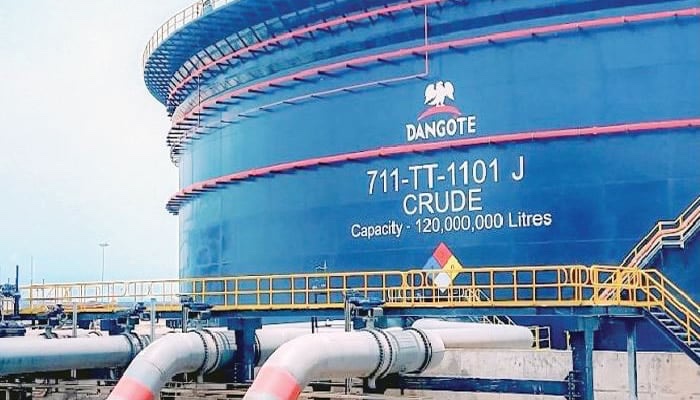
Africa’s richest man, Aliko Dangote, has strongly condemned the order issued by the Petroleum and Natural Gas Senior Staff Association of Nigeria (PENGASSAN) directing workers at the Dangote Refinery to down tools, describing the move as “ill-timed, reckless, and damaging to national interest.”
The dispute has sparked concerns over potential disruptions at the $20 billion, 650,000 barrels-per-day refinery, regarded as the largest in Africa and a strategic asset for Nigeria’s energy security. The facility, which only recently began phased operations, is expected to drastically reduce the nation’s dependence on imported refined petroleum products.
Union’s Grievances
Sources close to the matter revealed that PENGASSAN’s directive stemmed from unresolved welfare concerns and labour conditions, with workers allegedly demanding better remuneration, improved safety standards, and clearer structures for career progression. The union insists that management has failed to adequately address these issues despite repeated negotiations.
A senior PENGASSAN official who spoke on condition of anonymity said:
“Our members cannot continue working under unfair conditions. The directive is not to cripple the economy but to compel management to take workers’ welfare seriously.”
Dangote’s Reaction
Dangote, in a statement through his management team, warned that grounding operations at the refinery would have serious ripple effects across Nigeria’s fragile economy.
“This is not just about one company. The refinery is a national project. Any attempt to halt operations will undermine energy stability, scare away investors, and endanger jobs,” the statement read.
The business mogul argued that labour disputes should be resolved through dialogue, not actions that could jeopardise the refinery’s output at a critical time.
Government’s Stake and Mediation Efforts
The Federal Government is closely monitoring the situation. The Ministry of Labour and Employment is expected to step in to mediate between the union and the refinery’s management in order to avert a prolonged shutdown.
Industry analysts warn that if the standoff escalates, Nigeria could face renewed fuel scarcity and price volatility, given that the refinery was designed to significantly cut the country’s multi-billion-dollar annual fuel import bill.
The Refinery’s Strategic Importance
Commissioned with much fanfare, the Dangote Refinery is seen as a game-changer in Nigeria’s oil and gas sector. Operating at full capacity, it can meet all of Nigeria’s petrol and diesel needs while exporting surplus to West Africa. It is also expected to create thousands of jobs directly and indirectly, while boosting Nigeria’s foreign exchange reserves through exports.
Analysts argue that any disruption to its operations at this early stage could dampen investor confidence, especially as the project is still undergoing fine-tuning to reach optimal output.
What Next?
As tension mounts, both sides face pressure to return to the negotiating table. Labour unions insist they will not back down until their demands are met, while Dangote continues to stress that dialogue remains the only path forward.
For now, the refinery continues to operate, but the possibility of a shutdown looms if mediation efforts fail.
